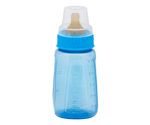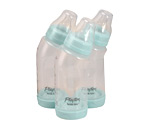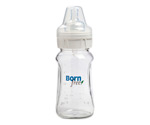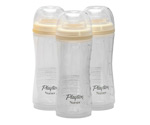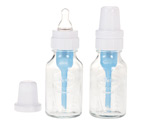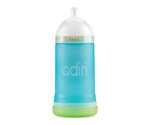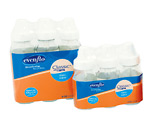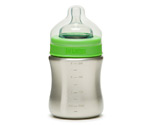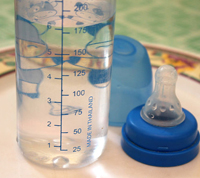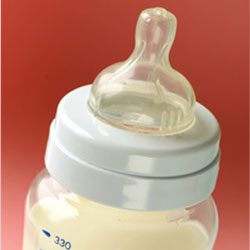
If you're planning to bottle-feed your baby breast milk or formula, you'll need bottles. Simple, right? Here's the tricky part: Choosing ones that work for your baby.
Some babies take to a particular type of nipple or bottle and outright refuse a different brand. And some babies have less colic, gas, and spit-up with certain bottles.
Does it matter which bottle you buy for your baby? Often, it doesn't, but for some feeding situations, choosing the right baby bottle can make all the difference.
Types
Here are the major types of baby bottles to consider. Many allow you to use nipples with varying flow rates, so you can change the nipple as your baby grows--but not the bottle.
| | | | |
| | | | |
Bottle Basics
| Nipples They come in different levels. Replace them as Baby is ready for the next size or when they are cracked, discolored, or thinning. You can also choose the material: Silicone is firm; latex is softer and doesn't last as long. Anti-colic features No one really knows what causes colic, but bottles with angled tops and special venting features can limit the amount of air that Baby takes in, reducing gas and spit-up. | |
Shape
Some are straight, others contoured or wide. A bottle with a broader neck is easier to clean.
Material
BPA-free plastic, glass, and stainless steel are all good choices if you're looking for an unbreakable or eco-friendly bottle.
What to look for when buying
| | Long ago, there was one type of bottle – glass. Now you can choose between dozens of different options: angle-necked bottles, bottles with disposable liners, wide bottles, "natural-flow" bottles, and the next generation of glass bottles. Concerns about chemicals in plastic baby bottles –particularly the chemical bisphenol-A (BPA) – have driven a renewed interest in glass. These can be more expensive up front, but don't need to be replaced unless they break, chip, or crack. If you're worried about breakage, you can buy silicone sleeves that slip over glass bottles and prevent them from breaking or shattering if dropped. Plastic bottles are unbreakable, but they do deteriorate, so you need to replace them regularly. If you're concerned about BPA, stick to new bottles (not hand-me-downs) labeled "BPA-free." (Major U.S. manufacturers say they're no longer selling bottles and other infant feeding accessories that contain BPA.) |
written by Nicolas Yang
